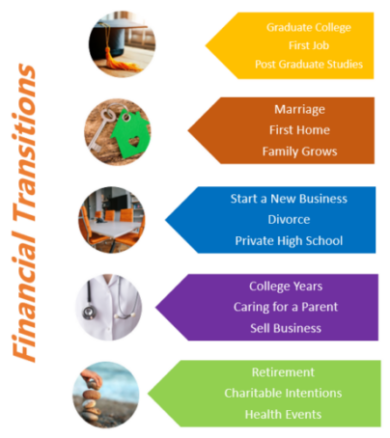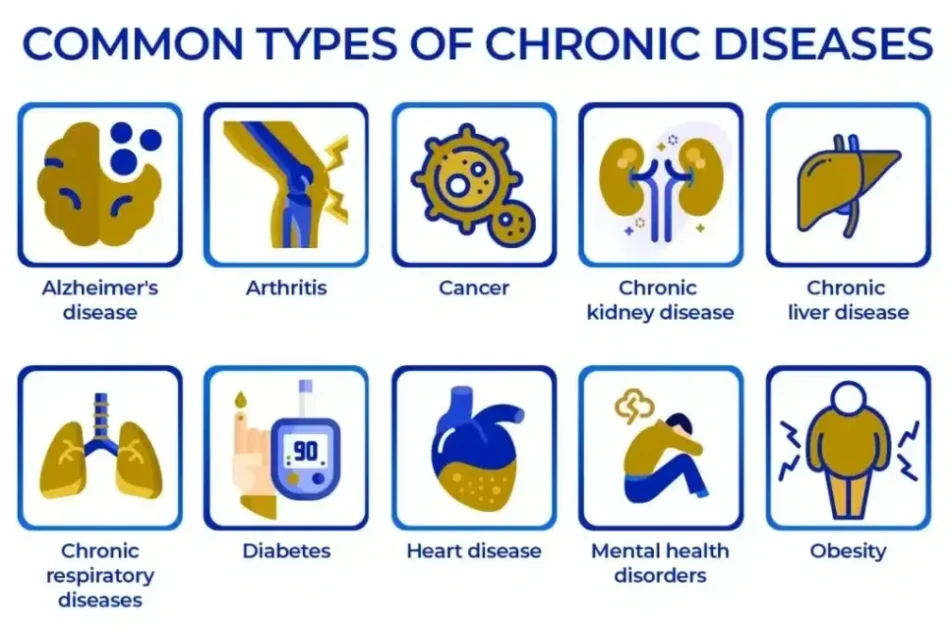What is your financial timeline?
Where do you see yourself? Do you know how to work through life’s many transitions?
From young emerging investors to seasoned exceeding investors, along the way financial events will arise and wo will the need for confident financial decision making. We often hear from our clients “we don’t want to mess it up.” Financial planning from the very start can keep an investor from making mistakes.
Emerging Investors
Our client experiences have demonstrated that more financial advice is necessary in the early years. Exactly when people are less likely to reach out due to a variety of factors: no money to invest, emotional insecurity, do not know who to contact, or embarrassed of their debt situation. However, this is the prime time for conversations and plan formulations. In fact, we’ve seen that those who overcome their obstacles and create a playbook early will pay down debt faster, build investment portfolios and retire ahead of goal.
For those who are newly graduated and starting to earn “real” money, learning about budgeting and investing is key. Waiting five to ten years or until you earn more may be detrimental. We talk about it all the time… it is important to know the answers to questions like these:
- How much is my take-home pay?
- Am I withholding adequately for federal, state, and local taxes?
- What are my total living expenses each month?
- How much is my company match?
Knowing your monthly cash flow will help a person set savings goals. Striving to save at least 10% should be the goal. Pre-tax deferrals, company matches, and potential Roth IRA contributions should hit the 10% mark. If you are able to do more, do it! Saving early and harnessing the power of compounding should be top priority. See our Simple Personal Finance Best Practices Checklist
Here is an example we share quite regularly. For those who can contribute the maximum $6,500 to a Roth IRA for the first 10 years (age 25to age 35) and allow it to grow assuming 8% annual return until their mid 60’s should have $1 million saved before 65. For those who wait, they will need to save a lot more and may not reach the $1 million threshold ever. Learning the importance of time early can be a motivator in budgeting exercises for those new to investing. Withdrawing tax-free income from a Roth is one of many tools which can be employed in retirement.
Evolving Investors
As life continues to evolve and change, more financial events will occur triggering additional conversations. Working through these financial happenings and uncovering options and strategies available in each stage is paramount. No two situations are alike but determining life insurance coverage needs and identifying college funding goals are common discussions among advisors and clients. As your wealth grows, it is important to assess your net worth at least annually and review your insurance coverages to be sure one has adequate protections for home, life and autos. Each situation is different and making sure short and long-term goals are added or changed with confidence is hugely beneficial to one’s outcome down the road. At this point it is important to educate yourself on what is ahead. Read our article on Must Know Information before Retirement.
Exceeding Investors
As retirement nears, it means many different things to people; but it is a major transition period for most. Our client retirement stories vary greatly and what actions to take from an investment portfolio standpoint also vary. From sitting home to building a new business or second home to adopting children in need are a few examples. Achieving financial independence and making sound decisions on spending limits, income distribution strategies, charitable gifting, and estate plans while mindful of tax savings strategies requires in-depth financial advisory discussions. Navigating through the complex rules of IRA distributions (QCD’s or RMD’s) and 1031 real estate exchanges requires guidance from financial, tax and legal experts. For more reading Exceeding Investors – How to Maintain Financial Health and Wealth – Wealth Planning Corporation
However, if you have a well-established advisory relationship and a current financial plan as a guide, the later years will be simple relatively speaking. Financial triggers and transitions can be complex matters to address. However, with the guidance of an advisor who genuinely cares about your success, you will have confidence at every stage. Financial planning is our focus in every client relationship from beginning to the end. We really get to know you, your family and your goals.





